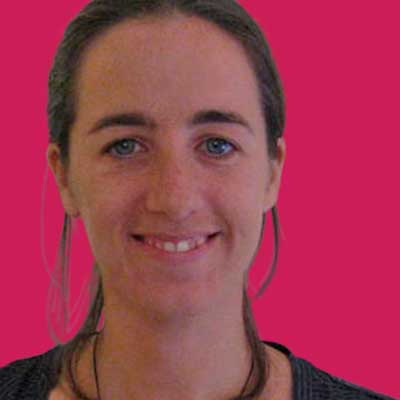In our webinar with Deanna Niha, leader of He Waka Eke Noa ELC in Whangarei, Deanna shared with us the way that she and her team approach bicultural education authentically through the concepts of mana-inspired leadership and mana-inspired teaching and learning. Deanna explained key concepts from Te Ao Māori and mātauranga Māori, and the ways in which these are woven with Te Whāriki to inform authentic bicultural philosophy and practice at He Waka Eke Noa. The key insights from the webinar include:
Bicultural practice involves a broad understanding, acknowledgement and enactment of Māori ways of knowing and being
At He Waka Eke Noa, bicultural practice is about ways of knowing and being, rather than phrases on the wall, greetings in te reo, or token karakia and waiata. It is underpinned by an acknowledgment of Māori as tangata whenua, support for the aspirations and challenges contained in Te Tiriti o Waitangi, and an appreciation of the privilege of working alongside tangata whenua (Māori) and tangata tiriti (treaty partners with Māori, which means all people other than Māori). The bicultural practices at He Waka Eke Noa focus on whakawhanaungatanga and affirming mana and individual identity to create a sense of belonging and safety for all.
Acknowledging mana involves acknowledging whakapapa, identity and taonga tuku iho
Mana is about upholding one’s whakapapa, identity and taonga tuku iho. Whakapapa, or genealogical connections to land and people, affirm a sense of self. Identity supports individuals to make sense of their world and who is in it. Taonga tuku iho involves celebrating the inherent dispositions and strengths that individuals are adorned with before they get to you, and all the people (tīpuna, or ancestors) that come with them. Taonga tuku iho can be acknowledged, accepted and used as a powerful teaching tool.
Mana-inspired leadership is key to transformational leadership
Mana-inspired leadership involves ensuring that each individual’s mana is always affirmed and never diminished. To affirm mana, three steps are useful:
- Listen first, observe with integrity
- Take a considered approach, uphold mana
- Respond respectfully, nurture mana wairua
In difficult situations, take a step back, take a breath, and think about what is in front of you for a minute. Always be respectful, even if you don’t agree. If the values, morals and culture within your centre are strong, you can have hard conversations that leave the other person feeling heard, with their wairua intact. Respecting the mana of others is important to your own integrity and mana. You own your own mana, so how you react to a situation or teaching moment belongs to you. To rangatira noho whakaiti: Stand strong in your own mana. You can’t take back words said or facial expressions shown! This also takes a team approach. The team at He Waka Eke Noa know each other well and they use this connectedness to support each other through the challenging situations that can arise during daily centre life.
Aligning teams to a common philosophy and practice
Values and morals need to be strong and recognised within the centre’s philosophy and culture. Each team member comes with a set of aspirations, attributes, values and morals, and it is important to acknowledge this, to recognise and value their identity, and to take time to unpack what they bring to the centre. When your team buys into and owns the centre philosophy, they are able to keep each other accountable for aligning practice with philosophy. It is important to review your philosophy often, especially when there is a shift in your learning community (such as a new staff member).
Linking bicultural practice with whānau aspirations
Whakawhanaungatanga (relationship-building) offers an opportunity to find out about whānau aspirations for their child and key aspects of a child’s identity. Acknowledging aspirations means affirming all kinds of links with home, and incorporates identity, whakapapa and taonga tuku iho: for example, learning that a talkative child’s great-great grandfather was a great orator. This information from home sits alongside the learning outcomes of Te Whāriki. Teachers make sure that whānau see the aspirations they have for their child reflected in their learning stories: ‘Mum and Dad love for you to be adventurous and look at you here, climbing that tree!’
Teachers also reflect aspirations when they use the concepts of mōhiotanga, mātauranga, and māramatanga which underpin learning. Referring to mōhiotanga involves acknowledging what the child inherently brings with them to learning – their ways of knowing and being, their interests, passions, urges and developmental journeys. The concept of mātauranga highlights the growth and development of dispositions and learning, such as schemas for learning, while māramatanga emphasises the impact of new knowledge for understanding and development, and for enhancing the child’s rangatiratanga or distinctive strengths. Teachers aim to speak to mōhiotanga, mātauranga, and māramatanga in each story they write. Whānau understand this because it is a normalised practice at He Waka Eke Noa.
Develop bicultural practice by first standing strong in your own culture
It is important to look within and understand who you are within your own mana wairua or spiritual essence before you can embrace, understand and nurture another cultural space. With a really deep sense of who we are and where we come from, we gain the ability to bring others along with us. When we have that ability to lead, we also have an absolute responsibility to ensure that those we are leading have somewhere to land softly, especially when spaces are unfamiliar, as may be the case with bicultural practice. When we practice from a mana-inspired lens, acknowledge and honour Māori as tangata whenua, and value the privilege to work alongside both Te Tiriti partners, we should be able to offer those soft landing places for culturally diverse teachers. A good place to start is with the resources of Te Whāriki, such as the whakatauki, and examine the meaning of these in your own context, remembering that Māori are expert of all things Māori and seeking additional support where necessary.
By Dr Vicki Hargraves

